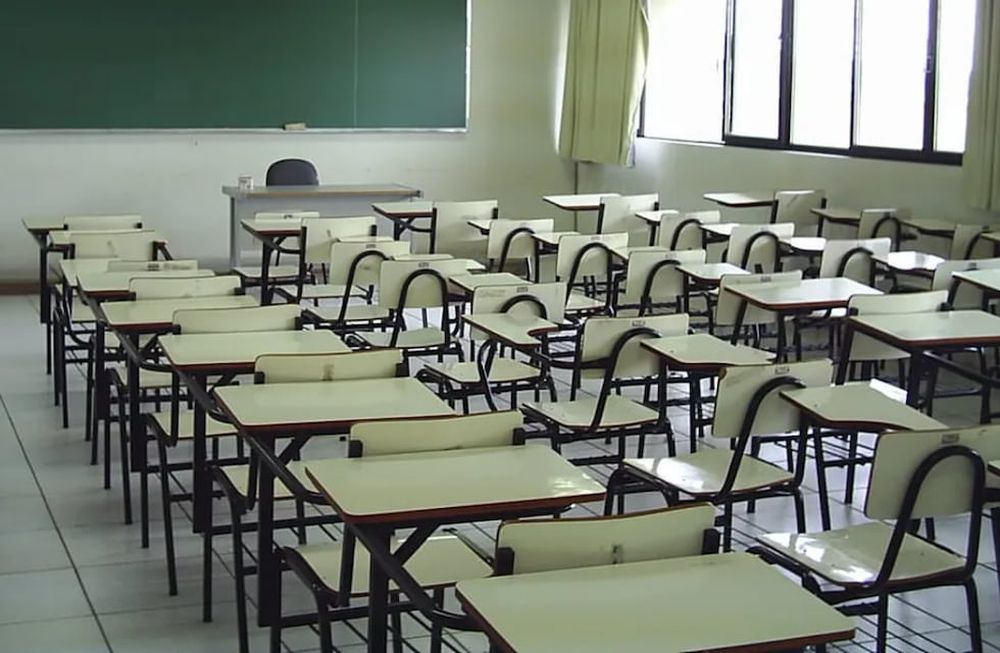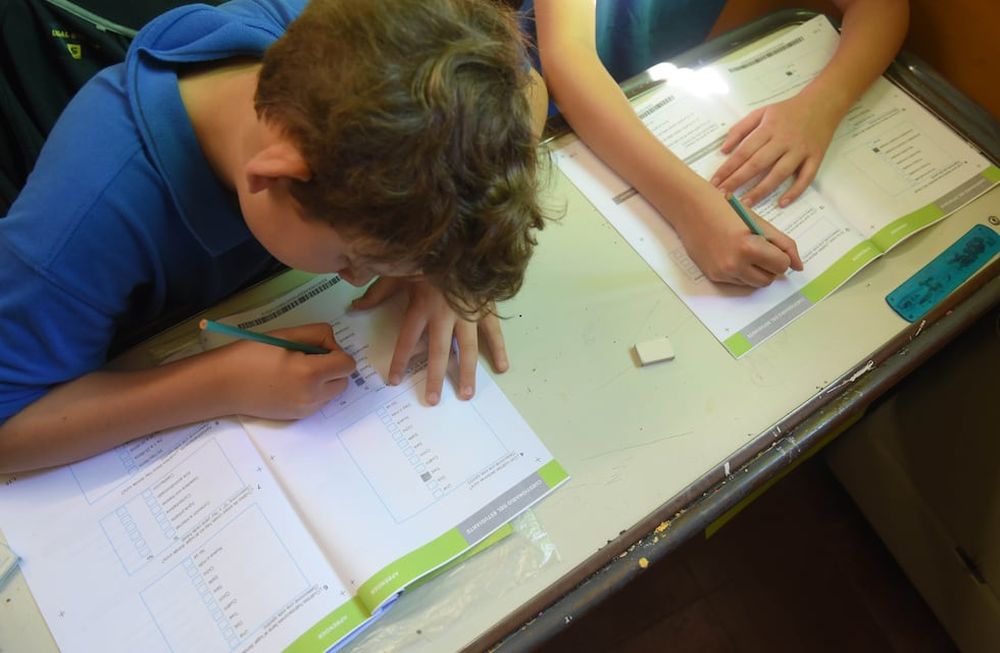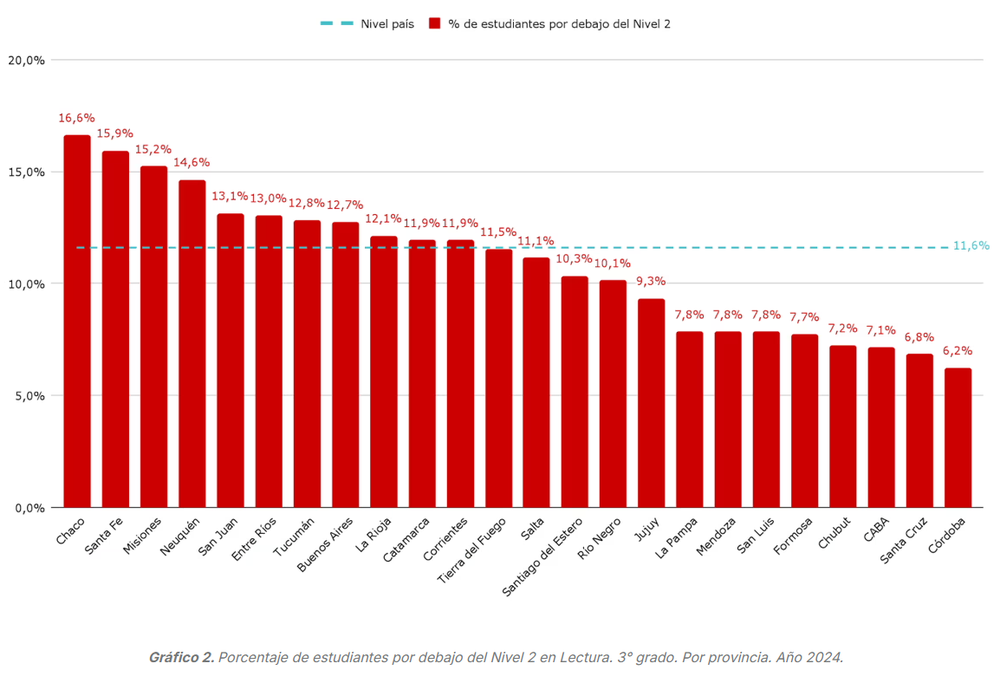While 1 in 10 third-graders in Argentina cannot read, in Mendoza 71% have an "advanced" level.

If it's not the core standard for early elementary school , it's certainly among the top three. Learning and knowing how to read is the basic requirement for first and second grade . This is why the recent results of the Aprender Tests are extremely concerning nationwide.
For the first time, the percentage of students in third grade who still cannot read simple texts exceeds 10% in Argentina ( 11.6% of children are just beginning to read simple texts in third grade). Furthermore, only 18.7% understand complex texts literally and thoughtfully (less than two out of ten children).
The teacher was suspended for a week, but is now back in the classroom. Illustrative image. Photo: Web

Beyond the worrying national situation , the results in Mendoza are even more encouraging . This same operation showed that 71.6% of Mendoza's third-grade students achieved satisfactory or advanced levels in reading comprehension .
The provincial rate exceeds the national average of 69.6% . "A result that reflects that Mendoza's sustained efforts in literacy are bearing fruit," celebrated the Minister of Education, Culture, Children and the General Directorate of Education (DGE), Tadeo García Zalazar , on his X (formerly Twitter) account.
Embed - https://publish.twitter.com/oembed?url=https://x.com/TadeoGZ/status/1919787776406401292&partner=&hide_thread=false
Aprender 2024 Results 71.6% of 3rd grade Mendoza students reach satisfactory or advanced levels in reading comprehension, exceeding the national average of 69.6%.
A result that reflects that Mendoza's sustained efforts in literacy are yielding... pic.twitter.com/PWUSt89srq
— Tadeo Garcia Zalazar (@TadeoGZ) May 6, 2025
"Learning Literacy 2024: Third-Grade Primary School Results" is the title of the report prepared by the Argentines for Education Observatory , authored by Leyre Sáenz Guillén and Víctor Volman . This report presents the reading performance levels of third-grade students nationwide.
In 2024 , the National Education Secretariat administered the "Aprender" test in third grade , focusing exclusively on reading and with a sample size of 91,042 students from 4,178 schools across the country . The test was part of the National Literacy Plan , also announced last year.
Although the tests were organized by the National Government , their implementation was left to the jurisdictional teams (provinces).
The teacher posted on Twitter that she disapproved of students who used inclusive language. - Illustrative image / Los Andes

In the "Aprender 2024" tests, 3.3% of students were placed at the "beginning reader" level (students who read words with the support of images and are beginning to read short sentences ), while 8.3% were at level 1 (students who are beginning to read simple texts ). Adding these two percentages together, we reach 11.6% of those who are just beginning to read simple texts . That is, children who are unable to read simple texts are placed below level 2 .
At the aforementioned level 2 , meanwhile, 18.8% of those evaluated are positioned, while at level 3 is 24.5% of the sample. At level 4 ( 26.4% of those evaluated) are those students who understand complex texts literally, inferentially and reflexively . Meanwhile, 18.7% of the students who are located at level 5 are those who understand complex texts literally, inferentially and reflexively , and -in addition- establish complex inferences .
From level 4 onwards, according to this categorisation, students are considered to have a solid command of reading for their age , with the ability to interpret and reflect on complex texts .
“The results , especially those that highlight the situation of the 11.6% of students in the country who cannot read , are very stark . Literacy must be an urgent priority for society as a whole. That said, it's a step forward that this test is being conducted and that we have more information to understand the situation ,” summarized Victor Volman , one of the report's authors.
In turn, the president of the Civil Association Education for All, Irene Kit , broadened her critical view.
Learn Mendoza 1.png

“There is a clear problem with the 11.6% below the basic level , which must be addressed to break out of this slump . But we must also consider that nearly 2 out of 10 students in level 2 can only read simple texts and respond to literal, explicit, and evident information in a text. These students face fourth grade with difficulty tackling tasks that require more subtle reading , and they must also be supported so that—as soon as possible— their reading skills can be consolidated , and thus they can continue their compulsory education with quality,” he warned.
The provinces with the most worrying dataChaco (16.6%), Santa Fe (15.9%), and Misiones (15.2%) are the three provinces with the highest percentage of students who do not read simple texts in Argentina. Meanwhile, the three with the lowest proportion in this situation are Córdoba (6.2%), Santa Cruz (6.8%), and the Autonomous City of Buenos Aires (CABA) (7.1%) . In Mendoza, 7.8% of students are below level 2 .
According to those responsible for the work, these territorial differences show that, although the problem is national, its intensity varies, and that each province requires responses adapted to its context .
losandes





